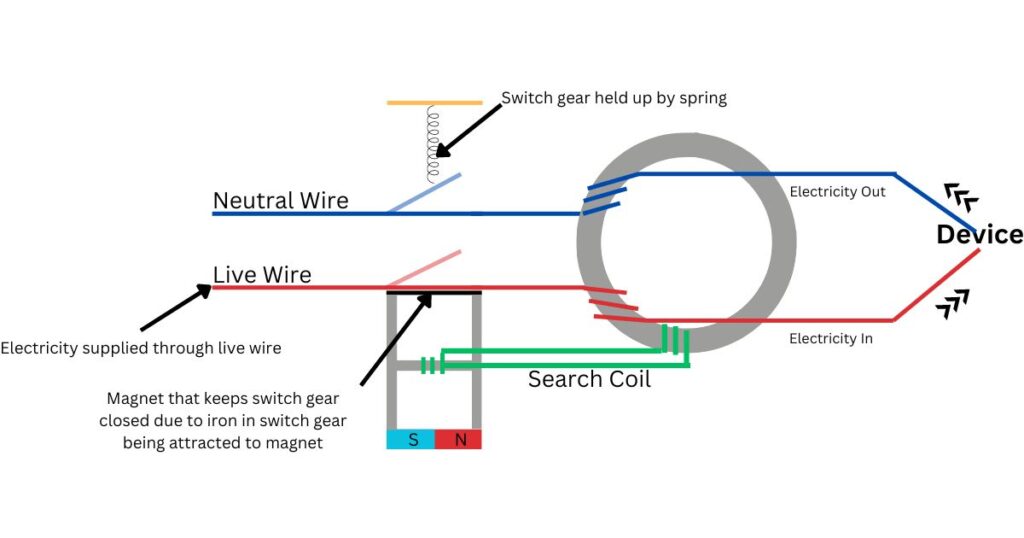RCD (Residual Current Device) protection is a device which is designed to prevent the dangers of electric shock and fire resulting from ground faults by quickly disconnecting power to a circuit.
RCDs work by measuring the current imbalance between two conductors if this current reaches a set threshold the circuit will open this will disconnect the power to a circuit.
Do All Circuits Need RCD Protection? (18th edition)
The 18th edition wiring regulations have requirements for RCDs such as
RCD protection must be provided for all circuits supplying luminaires (A complete electric light unit)
RCD protection must be provided for all circuits which supply portable equipment used outdoors such as a pressure washer or an electric drill.
RCD protection must be provided for socket outlets which have a rating up to 32A in locations such as kitchens, bathrooms and outdoor areas.
Different types of RCDs
Fixed RCDs
These RCDs are installed in the consumer unit and this can provide protection to either individual or groups of circuits. This type of RCDs provides the highest level of protection as it will protect all the wiring, sockets and any connected appliances.
Socket-outlet RCDs
These are sockets that have an RCD built into them, they can be used in place of a standard socket-outlet. This type of RCD only provides protection to the person it contact with the equipment.
Portable RCDs
These plug into any standard socket-outlet an act as a socket-outlet and an appliance can then be plugged into the RCD. They provide the same protection as a socket-outlet RCD.
How do RCDs work?
An RCD is designed to monitor the electric current flowing through a circuit. Both the live and neutral conductors pass through a magnetic ring. When there is no fault the currents flowing into and from the load are in balance. When a fault occurs some of the current will be transferred to the thing causing the fault this means that the RCD will detect an imbalance. This will cause an electromagnetic field in the switchgear causing the iron to no longer be attracted to the magnet allowing the spring to open the circuit therefore turning the circuit off.

How much will RCD protection cost?
A plug-in RCD can be as affordable as £10. While a fixed RCD is more expensive, it offers enhanced protection for your family. Installation costs may vary, so it’s advisable to obtain multiple quotes before making a decision. Abbey Group Services can offer you a competitive quote simply click ‘Get A Quote’ and fill out our contact form.

